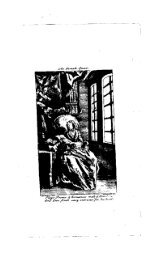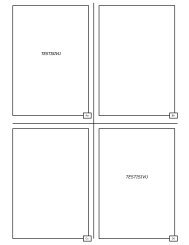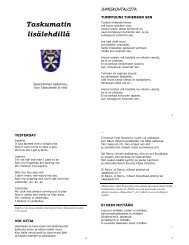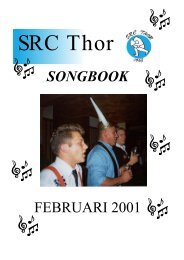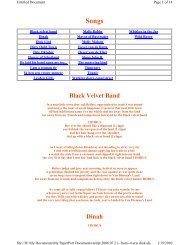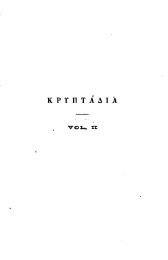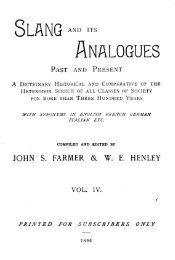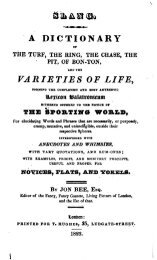You also want an ePaper? Increase the reach of your titles
YUMPU automatically turns print PDFs into web optimized ePapers that Google loves.
62<br />
not teem to have been very fkilful in that fcience,<br />
Sennertius thinks that there is not only a ftimulus<br />
communicated from the reins to the genitals, but that<br />
the feed itfelf is worked in them, and tranfmitted from<br />
them—which opinion Hoffman follows—and Sennertius<br />
colleEted this principally from hence, becaufe the<br />
reins have a peculiar parenchyma, as it appears not<br />
much different from the fubftance of the heart, or, as<br />
Aritams will have it, refembling the liver. Now<br />
Galen, in the feventh book of The Decrees of Hippo-<br />
crates and Plato, attributes a great and peculiar force<br />
to a peculiar parenchyma in the forming and working<br />
the blood, which is evident of all the parenchymas of<br />
the other vifcera, as Beverovicius has amply proved.<br />
Again, fince the emulgent vein is the greateft of all<br />
the veins that proceed from the vena cava, and carries<br />
more blood into the veins than is requifite for their<br />
nutriment, the artery, too, is larger than only to ferve<br />
to depurate the ferous humour, and therefore he<br />
thinks it probable that nature, which makes nothing<br />
in vain, would not have formed thofe veffels fo very<br />
large unlefs with a view to fome particular end ; and<br />
this end he concludes to be no other than carrying<br />
The arterial blood to the reins, fo that,'it being there<br />
mixed



